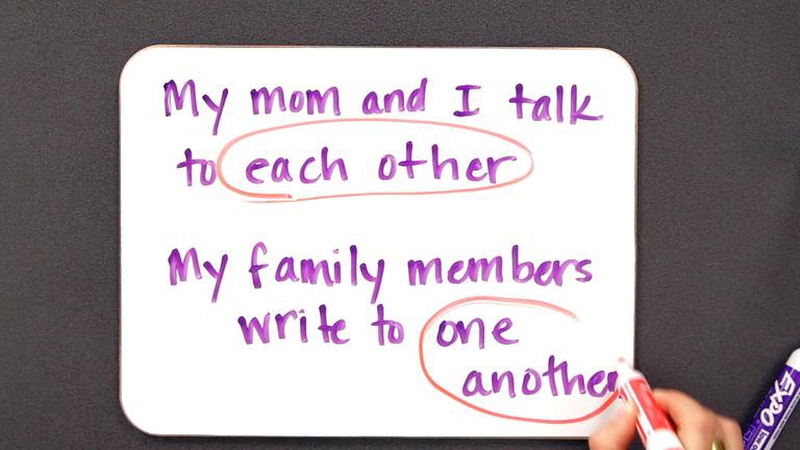“Each other” and “one another” are both what the English language calls reciprocal pronouns. This means that the pronouns do or feel the same thing to each other. An example of reciprocal pronoun use can be seen with the following sentence: “The two teams hate each other.”
Here, the two teams are reciprocal in their hate, i.e. team 1 hates team 2 and team 2 hates team 1. However, “each other” and “one another” are not technically interchangeable, although they sound as if they should be. Here we will discuss the “each other” vs “one another” confusion and explain the differences.

Each Other vs One Another: Why Confusing?
As discussed above, “each other” and “one another” are reciprocal pronouns that cannot be used interchangeably despite appearing to mean the same thing, which lead to the confusion. The reason they are not interchangeable is this: traditionally, “one another” refers to three or more subjects, while “each other” only refers to two subjects. See the below examples of both types.
The two professors help each other with grading papers.
The two cats licked each other.
The three ships fired their cannons at one another.
Despite this difference between “each other” vs “one another”, modern English has evolved such that there is no longer a distinction between “one another” vs “each other.” Therefore, even though the traditional rule states that “each other” refers to two subjects while “one another” refers to three or more, they can be used interchangeably in modern English usage. See the below examples:
Bob and Chuck pushed one another = Bob pushed Chuck and Chuck pushed Bob.
My friend and I mailed each other packages = I mailed my friend a package and my friend mailed me a package.
They refused to work with one another = She refused to work with him and he refused to work with her.
Note:
“One another” and “each other” are not synonymous with phrases such as “one and another”, which is used to refer to a person/thing and another person/thing, and “each of the others”, which refer to each one of the others people.
“One another” and “each other” cannot be used as the subject of a clause.
Each Other’s and One Another’s
Adding another wrinkle to the “each other” vs “one another” confusion, there are situations where we deal with the possessive of each. The general rule is that “each other’s” or “one another’s” should only refer to subsequent nouns that are singular. For example:
The two generals discussed a possible truce and commented on each other’s strategy for winning the battle.
Here, “strategy” is the singular noun.
However, in modern English, the singular noun is often ignored. For example:
The two generals discussed a possible truce and commented on each other’s ground forces.
Here, the noun, “forces” is plural.
Thus, according to what we have talked above, if you are strict about the grammar, stick to the rules. If not, it's still OK.

View All Comments /Add Comment